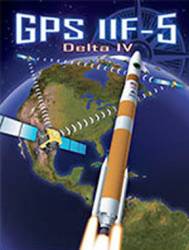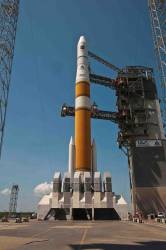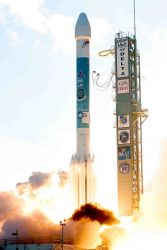
Planned launch of the fifth GPS Block II-F satellite on a Delta IV rocket has been delayed twice and now has no firm date for a new attempt.
Officials with the United Launch Alliance (ULA) — a 50-50 joint venture owned by Lockheed Martin and Boeing — attributed the delay to recent results of the second phase of an investigation into an anomaly that affected the second stage of a Delta IV GPS launch in October 2012.
Planned launch of the fifth GPS Block II-F satellite on a Delta IV rocket has been delayed twice and now has no firm date for a new attempt.
Officials with the United Launch Alliance (ULA) — a 50-50 joint venture owned by Lockheed Martin and Boeing — attributed the delay to recent results of the second phase of an investigation into an anomaly that affected the second stage of a Delta IV GPS launch in October 2012.
Although that launch was successful, an investigation was initiated that provided “extremely detailed characterization and reconstructions of the instrumentation signatures obtained from the October 2012 launch,” according to a ULA statement on its website. The delay will allow the ULA technical team time to assess some “updated conclusions” stemming from the investigation.
“A new launch date will be established when the assessment of the updated dynamic response information is completed in the coming weeks,” the ULA added.
Standard processing and checkout on the launch pad has been completed on the Delta IV booster for the IIF-5 mission and the launcher “will be maintained in a ready state” pending completion of the technical review.
The IIF-5 launch was originally scheduled for October 17, then postponed until Wednesday (October 23, 2013), before the latest delay. A successful launch of the GPS IIF-4 took place last May 15 on an Atlas V booster.
The October 2012 event involved a fuel leak within the second stage RL 10B-2 engine that caused lower than expected thrust. The event led to separate investigations by the U.S. Air Force, the ULA, and RL-10 engine manufacturer Aerojet Rocketdyne of Sacramento, California.





